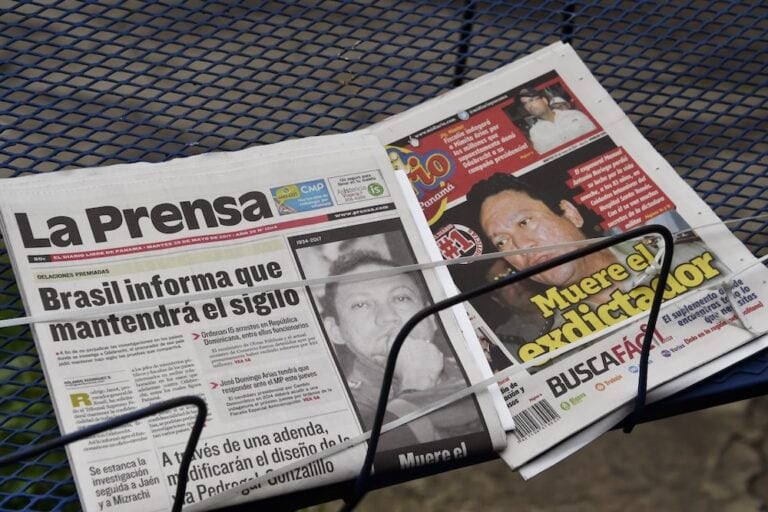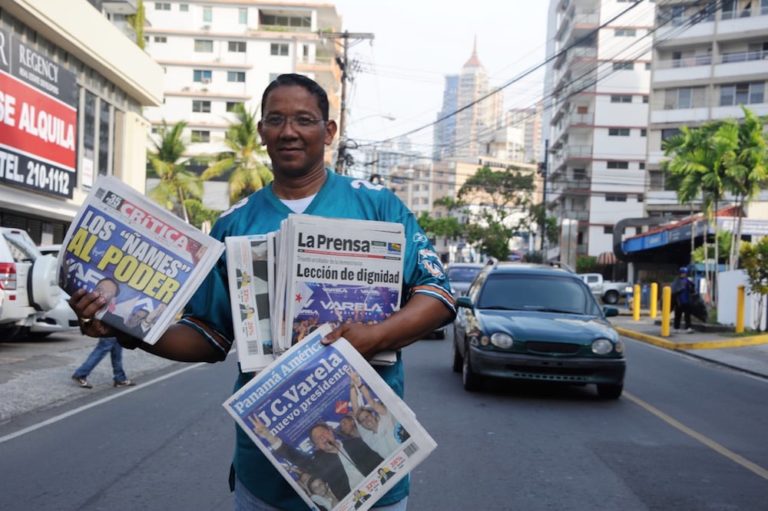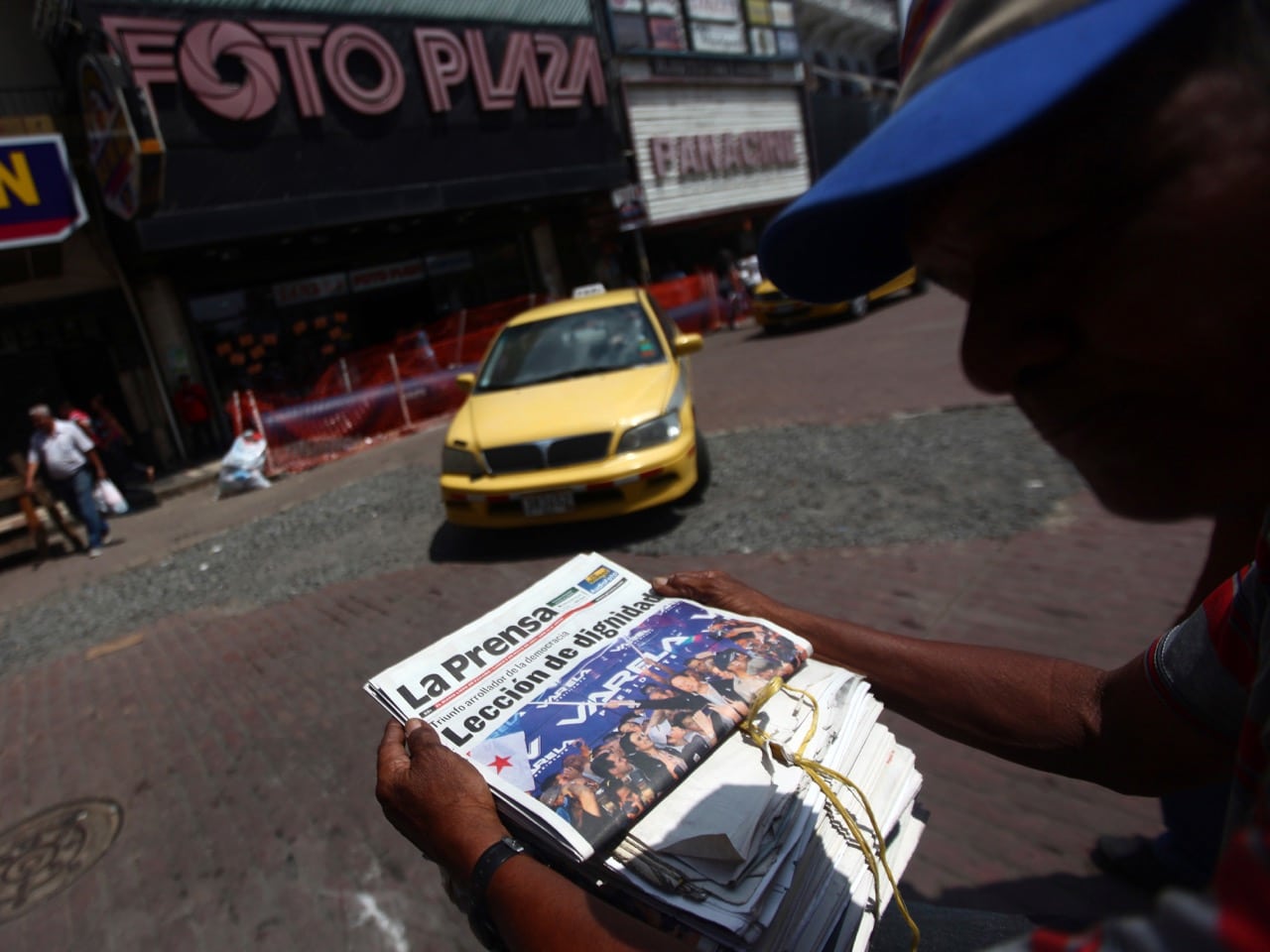In a major step forward for press freedom in Panama, the country’s Legislative Assembly approved a bill repealing some of the more onerous provisions of the country’s “gag laws”. The new bill, passed on the night of 30 November 1999 with the approval of 70 of the Legislative Assembly’s 71 members, repeals part of Law […]
In a major step forward for press freedom in Panama, the country’s Legislative Assembly approved a bill repealing some of the more onerous provisions of the country’s “gag laws”.
The new bill, passed on the night of 30 November 1999 with the approval of 70 of the Legislative
Assembly’s 71 members, repeals part of Law 11, which permitted the Ministry of Government and Justice to impose prior censorship and levy severe penalties, including shutting down media. The new bill also repeals Law 68, which established a Technical Board of Journalism with power to decide who could practice journalism.
A delegation from CPJ met with President Moscoso on 8 September and urged her to repeal the gag laws, and she pledged to do so during her administration. The president is expected to sign the bill into law later this week.
Panama’s gag laws comprise a range of articles, laws, and decrees – many promulgated under military governments – that permit prior censorship and criminalise criticism of public officials. One decree still on the books permits a National Board of Censorship to restrict information deemed obscene, immoral, or offensive to “the basic principles of Christian morality”. Dozens of journalists have been prosecuted under these laws.
Under the new bill, the Ministry of Government and Justice must submit a bill within 180 days regarding freedom of expression in Panama. CPJ hopes this bill will abolish all remaining gag law provisions and bring Panama’s legal press freedom guarantees fully in line with international standards.
“We applaud the repeal of these gag laws as a major step forward for press freedom in Panama,” said CPJ’s Executive Director Ann K. Cooper. “At a time when Panama is preparing to exercise full sovereignty over its territory with the return of the Panama Canal, it is heartening to see the government accept that a free press is a vital component of any democracy.”


